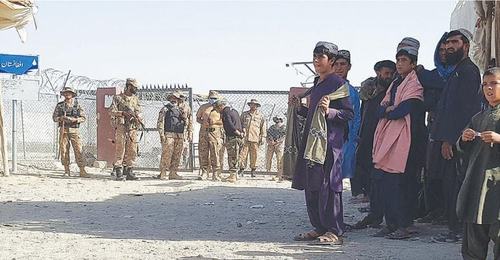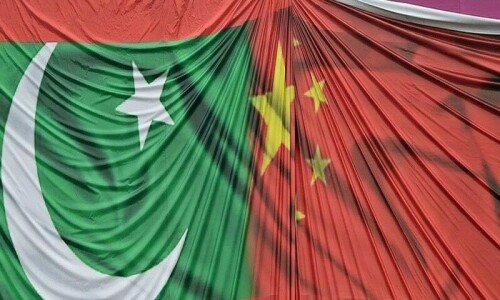In Balochistan, trade has dwindled to nothing following the closure of border points with Afghanistan, particularly in Chaman, where the Taliban have taken control of Spin Boldak, the neighbouring Afghan trading town point with Chaman. There was increasing uncertainty, and the traders faced losses as their trucks continued to pile up in Chaman and Quetta, the provincial capital of Balochistan.
Chaman is a scruffy commercial town that rose to prominence due to Afghan trade following the late 1970s. It is today the second-largest commercial border point with Afghanistan after the Torkham commercial town in KP.
During the time of uncertainty when the war was ongoing between the Afghan Taliban and Afghan security forces, trade took place and traders continued to dispatch their trucks to export items including perishable ones. According to the businessmen, they were taxed twice to reach Kabul: firstly by the Afghan Taliban and secondly by the Afghan security forces. A local trader said sometimes they were taxed thrice before reaching Kabul, which is why they incurred losses.
Badruddin Kakar, the leader of Quetta Chamber of Commerce, seemed content about the current flow of trade between Afghanistan and Pakistan. “After ups and downs, the trade is back to normal after the complete takeover of the Afghan Taliban in Kabul and elsewhere in Afghanistan. There are no restrictions now on the part of Afghanistan,” he told Dawn after narrating the on and off closure of the Chaman border with Afghanistan. “The traders faced losses, especially due to perishable goods owing to the closure of the border.”
‘After ups and downs, trade is back to normal after the complete takeover of the Afghan Taliban in Kabul’
Chaman is situated in Killa Abdullah district of Balochistan, in the northwest. According to the 2017 census, the total population of district Killa Abdullah is 757,578. Due to its burgeoning population, the Balochistan government has recently created two new districts, bifurcating Killa Abdullah. And the Chaman bordering town, due to its distinct identity as the trade hub in the province, would comprise Chaman city and tehsil Saddar Chaman.
The distance between Quetta and Chaman is over 120 km. In recent weeks, trucks en route to Chaman piled up in the provincial capital, too.
“We had four trucks parked in our godown in Quetta, with goods intended for export to Afghanistan,” said an officer of a multi-national company in Quetta, who did not want to be named. But the trucks could not reach their destination due to frequent closures of the border with Afghanistan. “That is the price of doing business with Afghanistan,” he said.
Echoing the said claim, Mr Badruddin Kakar is of the opinion that there are trucks in hundreds that have piled up on the other side of the Afghan border, at Badini border point, a new terminal for trade opened up recently by the provincial government of Balochistan for trade at the in the province’s Killa Saifullah district. “Such developments restrain trade with Afghanistan,” he said.
At the time of writing this report, there is a significant number of cargo vehicles and pedestrian traffic across the Chaman border. According to business and customs officials in Chaman, so far Afghan Taliban has not imposed any conditions on trade.
Recently, Dawn reported that Pakistan’s exports valued in June at Chaman border stations were recorded at Rs2.21 billion while import value stood at Rs1.084bn.
According to local traders in Chaman, Afghan transit is ongoing and over 100 cargo vehicles leave in a day during the eight hours the transit gate is opened.
According to media reports, the number of Afghan refugees fleeing Afghanistan has increased manifold. One of the reports puts it to 18,000 per day following the takeover of the Afghan Taliban, wherein previously 4,000 would arrive in Pakistan in a day, via the Chaman border. Similarly, following the opening of the Chaman border, the rush increased because a lot of vehicles were already stranded.
Haji Jalat Khan Achakzai is the local president of the Chamber of Commerce in Chaman. Keeping in view the aforementioned developments surrounding trade in recent weeks around the Chaman border, he has come up with a disconcerting view for the local business community of Chaman in particular and Balochistan in general. According to him, due to recent developments, the Chaman trade has been diverted to Torkham, in Khyber Pakhtunkhwa province.
“On normal days, we used to export between 150 to 200 vehicles, with fruits and vegetables,” Mr Achakzai shared with Dawn, adding, “now, the overall trade is limited to over 100 cargo vehicles in a day.”
Published in Dawn, The Business and Finance Weekly, August 30th, 2021
















































